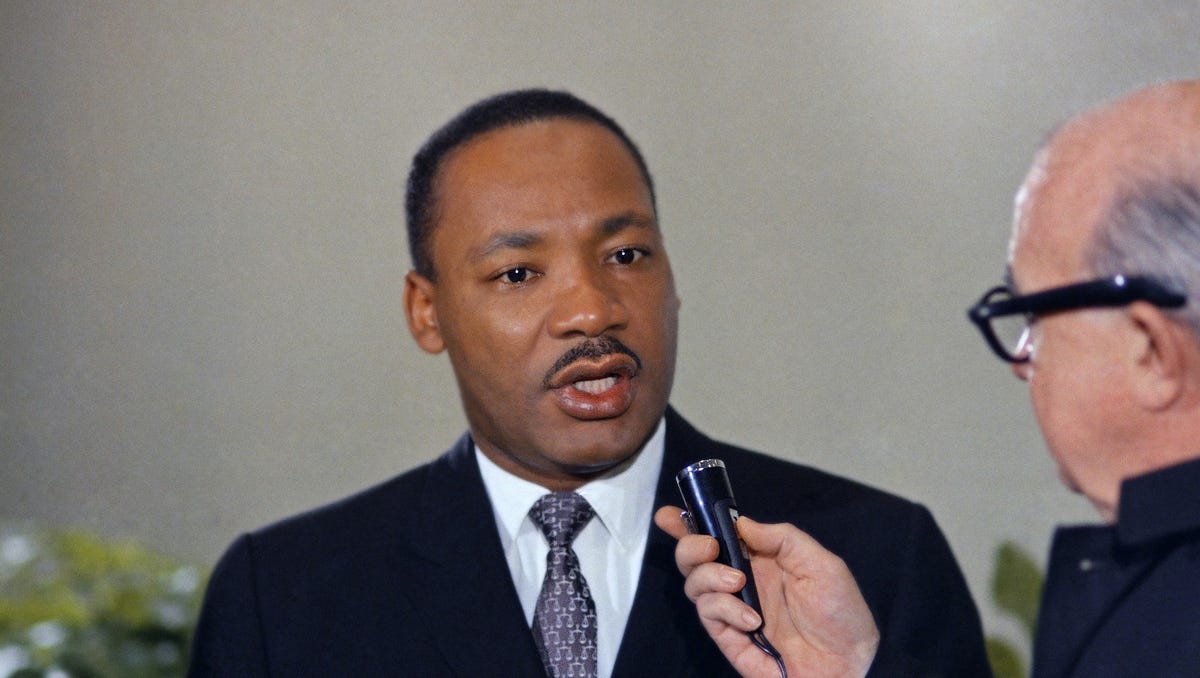Basic Income Guarantee Would Provide Economic Security

Dr. Martin Luther King Jr. said it best during a November 1967 lecture, “We are demanding an emergency program to provide employment for everyone in need of a job, or if a work program is impractical, a guaranteed annual income at levels that sustain life in decent circumstances. It is now incontestable that the wealth and resources of the United States make the elimination of poverty absolutely practical.” These words are truer than ever.
Too often, many of our neighbors live precarious lives, devoid of economic security, while still living in what is one of the world’s largest economies — more than $19 trillion. Many struggle silently to afford food, rent or child care, lacking any sense of economic security.
Universal basic income (UBI) is that missing sense of security. It’s the centuries-old policy idea of unconditionally lifting up every man, woman and child with a foundational income floor upon which to earn additional income.
Beyond addressing existing economic injustice and creating a foundation, UBI is also proposed to address our more automated future. For example, fully-autonomous vehicles will put millions of transportation workers out of work.
Ask your elected politician or candidate for office how we will deal with this ongoing problem of the accelerated automation of human labor. Proposals for solutions should be made today and not after disaster occurs.
UBI is evolutionary, not revolutionary. It requires a paradigm shift in how we think about notions of work, inequality, scarcity and human freedom.
Admittedly, there are other sound and complementary proposals outside of UBI, which can further improve the quality of life of the everyday person. Unfortunately, none speak to the eradication of systemic poverty. UBI takes a very large step toward this goal.
While the elimination of poverty is often perceived as utopian, it must be understood that eliminating poverty is undeniably possible, but its achievement is hindered by a crippling lack of political will.
We will achieve a basic income, once we convince our legislators that not supporting it will lose elections.
In the last 80 years, the United States has experimented and bills have even been drafted, but they have never gone so far as to institute basic income policy. Nevertheless, we are convinced, given the benefits of an income guarantee and the future of automation, a federally instituted UBI will be required and achieved in the next decade.
The list of prominent UBI supporters is long, but one notable opponent is former Vice President Joe Biden. Biden argues that the value of hard work in providing a sense of identity provides sufficient reason to reject a UBI.
There is no denying the function of work in providing an individual with a sense of identity. But we should be very wary of accepting arguments that use the social function of work to oppose providing a basic social safety net.
Ending the constant worry of going homeless or hungry, increasing the bargaining power of workers, enabling individuals to pursue wage-boosting job training and enabling entrepreneurs to take risks, a basic income will provide for one's basic needs.
In other words, UBI is a foundation on which to pursue the work we deem most valuable and meaningful to us, paid or unpaid. Those like Biden don’t recognize this aspect, despite the fact he himself starts each month not with $1,000 as an income floor, but $20,000. That’s the size of his Senate pension. Does his pension erode his work ethic? Maybe that’s a question to ask him during his national tour.
As UBI continues to rise in the national arena, with 2020 U.S. presidential candidate Andrew Yang running on a pro-UBI platform and the recent UBI endorsement by former President Barack Obama, it will be crucial for us to take the time to understand the policy proposal, and implications, outside of a typical conservative versus liberal frame of thought.
While work contributes greatly to the formation of one’s social identity, we’re not convinced that paid employment in jobs we can’t really refuse is the best way of achieving a sense of meaning through work. Nor are we convinced that poverty wages and financial insecurity that together dominate the lives of the majority is a status quo to support as ideal. Do you?
This article was originally written for and published by The Gainesville Sun


Do you want more content like this? Please click the subscribe button and also consider making a monthly pledge in support of my ongoing UBI advocacy.
_large.jpg)
UBI Guide Newsletter
Join the newsletter to receive the latest updates in your inbox.

